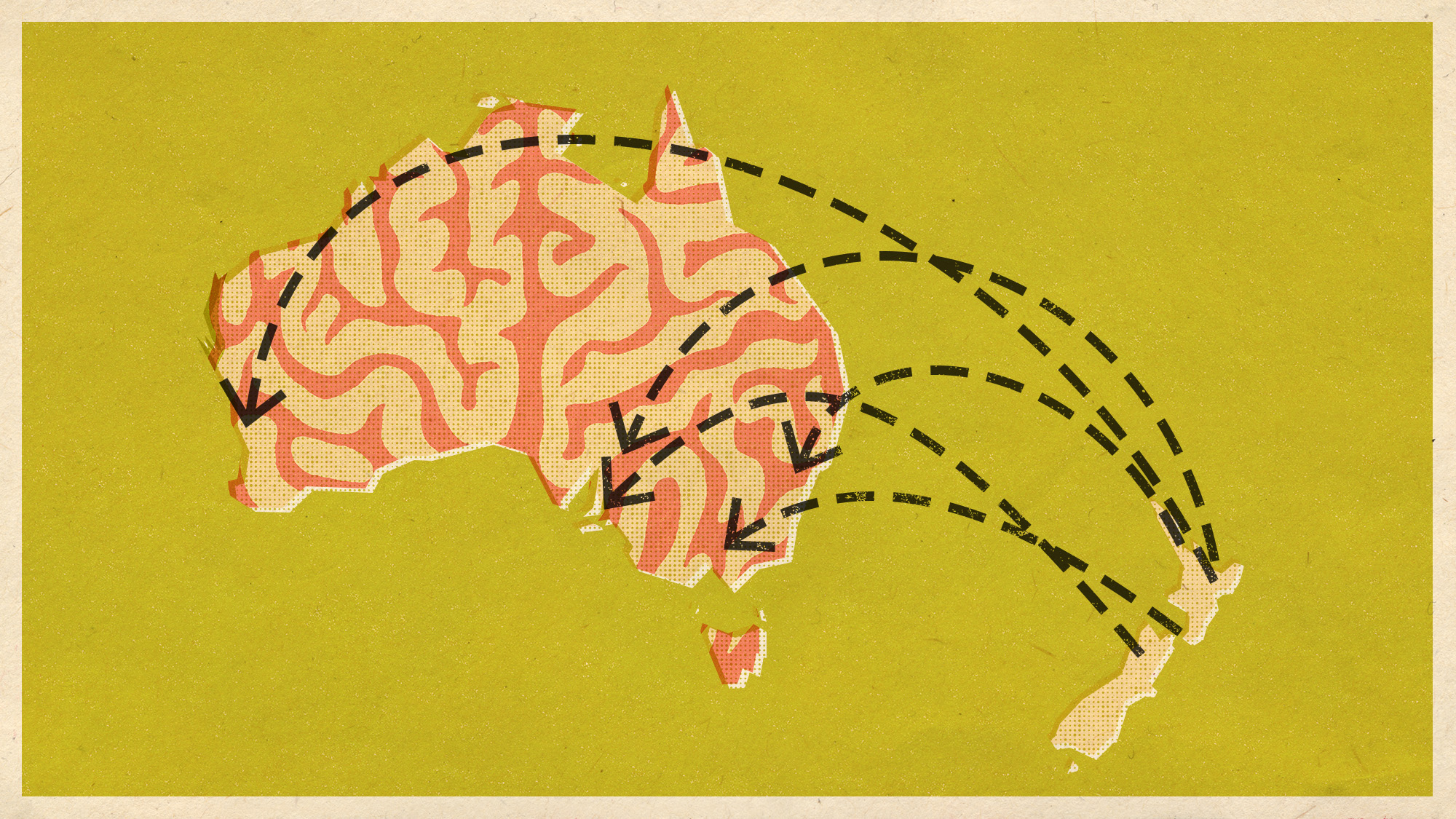Who is bearing the brunt of Covid-19 job losses?
Studies reveal pandemic’s impact on the UK’s youngest, oldest and disabled workers
A free daily email with the biggest news stories of the day – and the best features from TheWeek.com
You are now subscribed
Your newsletter sign-up was successful
No sector of the UK workforce has escaped the wide-ranging impact of job losses as a result of the Covid-19 pandemic, three new studies show.
Research by the London School of Economics (LSE) found that young people in the UK are more than twice as likely to lose their jobs than slightly older workers with more of a foothold on the job ladder.
In the past two months, 11.1% of people aged between 16 to 25 have been made unemployed, compared with 4.6% of those aged 26 and over. The data highlights “the growing divisions in the workplace”, says The Guardian says.
The Week
Escape your echo chamber. Get the facts behind the news, plus analysis from multiple perspectives.

Sign up for The Week's Free Newsletters
From our morning news briefing to a weekly Good News Newsletter, get the best of The Week delivered directly to your inbox.
From our morning news briefing to a weekly Good News Newsletter, get the best of The Week delivered directly to your inbox.
The LSE researchers also found that women, self-employed people and those who grew up in a poor family were more likely to experience job losses and wage cuts.
And they “warned the spectre of 1980s-style long-term unemployment was increasing, especially for those just starting to make their way in the jobs market”, the newspaper adds.
Separate research by the Centre for Economics and Business Research (CEBR) shows how middle-class and older workers are being impacted too, with many facing long spells out of work and pay cuts of more than 25% as companies make cuts ahead of the end of the furlough scheme at the end of this month.
Manufacturing hubs such as Wolverhampton and commuter towns such as Brighton, Luton and Slough have already seen “sharp rises in numbers on the dole since March”, The Times reports.
A free daily email with the biggest news stories of the day – and the best features from TheWeek.com
CEBR deputy chair Doug McWilliams said: “The middle class is likely to get hit much worse as we go on. A lot of management jobs have gone, a lot of professional jobs have gone, and some specialist ones. The middle classes have a jobs crisis – their pensions are squeezed and house prices will be lower.”
Meanwhile, a survey by the Leonard Cheshire charity reveals that two in five hiring managers regard “being able to support” disabled people properly during the coronavirus pandemic as a barrier to recruitment, the BBC reports.
The charity says that about seven in ten disabled people have seen their income drop, been furloughed or have feared redundancy as a result of Covid-19.
Of the 7.7 million disabled people of working age in the UK, 53.6% are currently in work, compared with 81.7% of working-age people who are not disabled, according to the Office for National Statistics.
Chas Newkey-Burden has been part of The Week Digital team for more than a decade and a journalist for 25 years, starting out on the irreverent football weekly 90 Minutes, before moving to lifestyle magazines Loaded and Attitude. He was a columnist for The Big Issue and landed a world exclusive with David Beckham that became the weekly magazine’s bestselling issue. He now writes regularly for The Guardian, The Telegraph, The Independent, Metro, FourFourTwo and the i new site. He is also the author of a number of non-fiction books.
-
 The Gallivant: style and charm steps from Camber Sands
The Gallivant: style and charm steps from Camber SandsThe Week Recommends Nestled behind the dunes, this luxury hotel is a great place to hunker down and get cosy
-
 The President’s Cake: ‘sweet tragedy’ about a little girl on a baking mission in Iraq
The President’s Cake: ‘sweet tragedy’ about a little girl on a baking mission in IraqThe Week Recommends Charming debut from Hasan Hadi is filled with ‘vivid characters’
-
 Kia EV4: a ‘terrifically comfy’ electric car
Kia EV4: a ‘terrifically comfy’ electric carThe Week Recommends The family-friendly vehicle has ‘plush seats’ and generous space
-
 Unemployment rate ticks up amid fall job losses
Unemployment rate ticks up amid fall job lossesSpeed Read Data released by the Commerce Department indicates ‘one of the weakest American labor markets in years’
-
 Is the UK headed for recession?
Is the UK headed for recession?Today’s Big Question Sluggish growth and rising unemployment are ringing alarm bells for economists
-
 What's Jeff Bezos' net worth?
What's Jeff Bezos' net worth?In Depth The Amazon tycoon and third richest person in the world made his fortune pioneering online retail
-
 'Brain drain' fear as record numbers leave New Zealand
'Brain drain' fear as record numbers leave New ZealandUnder The Radar Neighbouring Australia is luring young workers with prospect of better jobs
-
 Are we getting a 'hard landing' after all?
Are we getting a 'hard landing' after all?Today's Big Question Signs of economic slowdown raise concerns 'soft landing' declarations were premature
-
 Ghost kitchens are pulling a disappearing act
Ghost kitchens are pulling a disappearing actunder the radar The delivery-only trend is failing to live up to the hype built up during the pandemic
-
 The birth of the weekend: how workers won two days off
The birth of the weekend: how workers won two days offThe Explainer Since the 1960s, there has been talk of a four-day-week, and post-pandemic work patterns have strengthened those calls
-
 Why household wealth took off during the pandemic
Why household wealth took off during the pandemicUnder The Radar The Covid-19 pandemic caused a lot of pain and hardship, but new research shows it also left most Americans wealthier